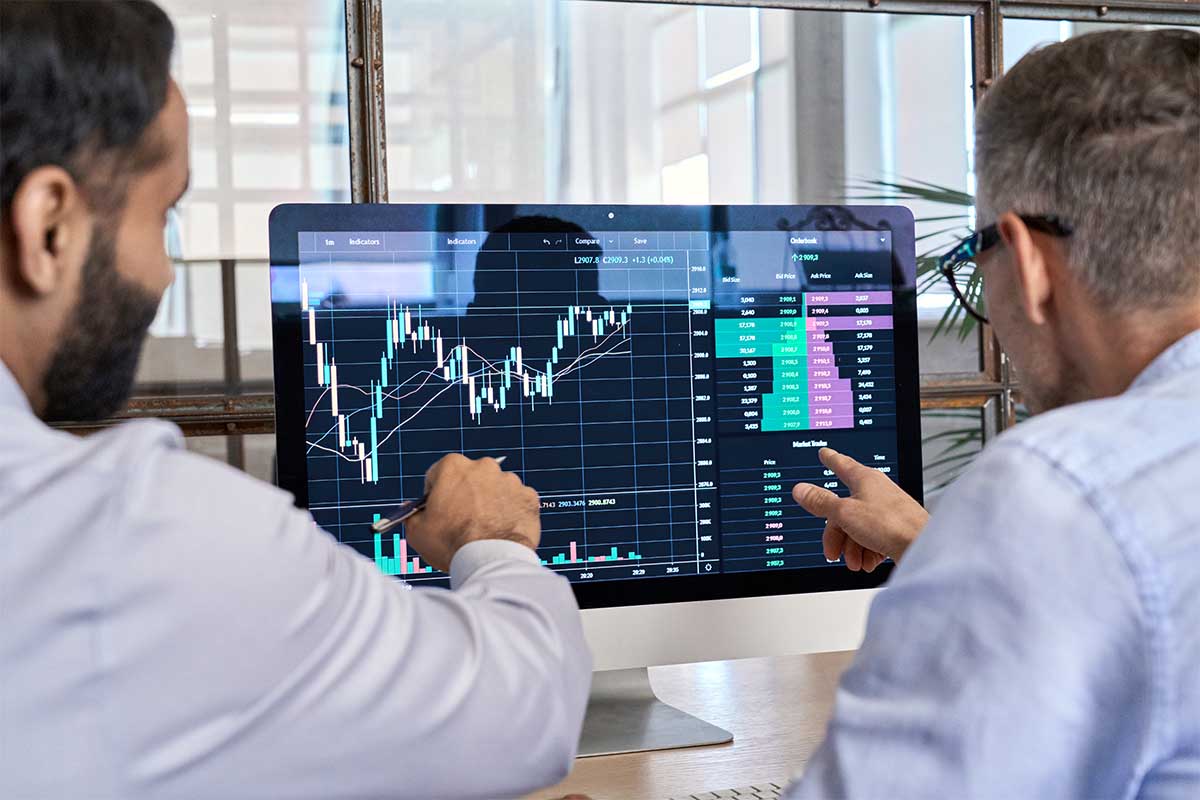Forex trading, also known as Foreign exchange trading, is the buying and selling of currencies to profit from fluctuations in their values. With its immense potential for profitability and accessibility, Forex trading has attracted the attention of many individuals seeking to venture into financial markets. If you are interested in starting your Forex trading journey, this comprehensive Forex trading guide will provide the necessary information to get started on the right track.
- Forex trading capitalizes on currency fluctuations for profit
- Forex trading offers accessible and lucrative opportunities
Understand the Basics of Forex Trading
To initiate your Forex trading journey, you must grasp the fundamental aspects of the market. Take a Forex trading course and educate yourself about critical concepts like currency pairs, exchange rates, and the various market participants. Develop a solid understanding of how economic, political, and geopolitical factors influence currency values. By acquiring this knowledge, you can confidently make informed trading decisions and navigate the Forex market.
- Initiate your Forex trading journey with a solid Forex Education
- Learn about currency pairs, exchange rates, and market participants
- Understand the impact of economic and geopolitical factors
To acquire advanced Forex trading knowledge, you must engage in a continuous learning process. Study educational materials, attend webinars, and follow reputable trading blogs and forums. Familiarize yourself with technical analysis tools, chart patterns, economic indicators, and risk management techniques. Stay updated with the latest market news and economic events that can significantly impact currency prices.
- Continue to study Forex trading, attend webinars, and follow reputable sources
- Understand technical analysis, chart patterns, economic indicators, and market news
Set Clear Goals and Define Your Forex Trading Strategy
Before you start trading, establish clear goals for yourself. Determine your risk tolerance level, the amount of time you can dedicate to trading, and the financial resources you are willing to invest. Develop a trading strategy that aligns with your goals and risk appetite. Consider factors such as trading style (scalping, day trading, swing trading, etc.), analysis methods (technical, fundamental, or combination), and money management principles.
- Develop a trading strategy aligned with your goals and risk appetite
- Adopt a trading style, analysis methods, and money management principles
Choose a Reliable Forex Broker
Selecting a reputable Forex broker is crucial for a successful trading experience. Look for regulated Forex brokers offering competitive spreads and a user-friendly trading platform. The broker must have a reliable customer support system. Conduct thorough research and read Forex Broker reviews from other traders to make an informed decision.
- Always conduct thorough research on a Forex Broker
- Select a broker based on your research and evaluation
Open a Trading Account and Choose the Right Account Type
Once you choose a reputable Forex broker, the next step is to open a trading account that suits your trading strategy and goals. (Passive) Most brokers offer various accounts with different features and minimum deposit requirements. Take the time to carefully review the account types and select one that aligns with your trading objectives and financial capabilities.
Standard Account
Forex brokers commonly provide a standard trading account option. This account typically requires a moderate minimum deposit and offers standard trading conditions. It suits traders who are starting and prefer a direct trading experience.
Mini Account
Traders with smaller budgets or those who want to trade with lower position sizes can opt for a mini account. It requires a lower minimum deposit than standard accounts and allows trading in smaller increments. This account type is ideal for beginners or those looking to test their trading strategies with smaller capital.
Micro Account
For minimal financial risk, traders can consider a micro account. Similar to a mini account but with even lower minimum deposit requirements, it enables traders to gain experience in a live trading environment while limiting potential losses. This account type is particularly suitable for novice traders.
VIP or Premium Account
Experienced traders or high-net-worth individuals may have access to VIP or premium accounts offered by some brokers. These accounts require a significant minimum deposit but provide enhanced features, personalized support, lower transaction costs, and exclusive trading conditions. VIP accounts cater to the specific needs of advanced traders.
Islamic Account
Traders adhering to Islamic principles and Sharia law can choose an Islamic account. These accounts comply with Islamic finance principles, prohibiting the earning or paying of interest (swap-free accounts). Islamic accounts may have specific terms and conditions, such as no overnight swap charges.
Learn and Practice on a Demo Account
Before risking real money, take advantage of the demo account provided by your broker. A demo account allows you to trade in a simulated environment using virtual funds. Use this opportunity to familiarize yourself with the trading platform, test your trading strategy, and gain practical experience without any financial risk.
Develop a Trading Plan and Stick to It
For consistent success in Forex trading, establish a well-defined trading plan. Create a plan encompassing your entry and exit strategies, risk management guidelines, and rules for executing trades. It is crucial to adhere to your plan diligently and avoid making impulsive trading decisions driven by emotions.
Adhering to your pre-defined strategies and risk management guidelines effectively minimizes potential losses and increases your opportunities for consistent profitability in Forex trading. Always remember that a well-developed trading plan acts as your guiding roadmap, helping you navigate the dynamic and unpredictable nature of the market with confidence and clarity.
- Create a comprehensive trading plan with risk management strategies
- Follow your plan diligently, avoiding impulsive emotions
- Minimize losses and maximize profitability with disciplined strategies
Start with Small Position Sizes and Manage Risks
When transitioning from a demo account to a live trading account, starting with small position sizes is crucial. This practice allows for effective risk management and limits potential losses. You can progressively scale your trading activities by gradually increasing position sizes as you gain experience and confidence. This method allows you to fine-tune your trading strategies and adapt to the dynamics of the live market environment while effectively managing risks and preserving capital.
Additionally, it is essential to utilize risk management tools such as stop-loss orders to protect your capital from significant downturns. These orders automatically close your trade if the market moves against your position beyond a specified threshold, helping you limit potential losses. By implementing such risk management techniques, you can navigate the challenges of live trading with a disciplined approach and safeguard your trading capital. Remember, starting with small position sizes and employing risk management tools are prudent when transitioning from a demo account to a live to account.
Monitor and Analyze the Market
To maintain a proactive approach, stay vigilant and regularly monitor the Forex market. Analyze price charts to identify trends and spot trading opportunities that align with your strategy. Utilize technical indicators and tools to support your analysis, empowering you to make well-informed trading decisions.
Continuously updating your market knowledge and staying informed about economic events that can impact currency prices is essential. Stay connected with financial news sources and industry updates to enhance your understanding of the factors influencing the Forex market.
Continuously Evaluate and Improve
To succeed in Forex trading, engage in continuous evaluation and improvement. Maintain a trading journal to record your trades, analyze your performance, and identify areas for enhancement. Learn from your mistakes and utilize your experiences to refine and strengthen your trading strategy. By actively seeking opportunities for growth and development, you can enhance your trading skills and increase your chances of long-term success in the Forex market.



